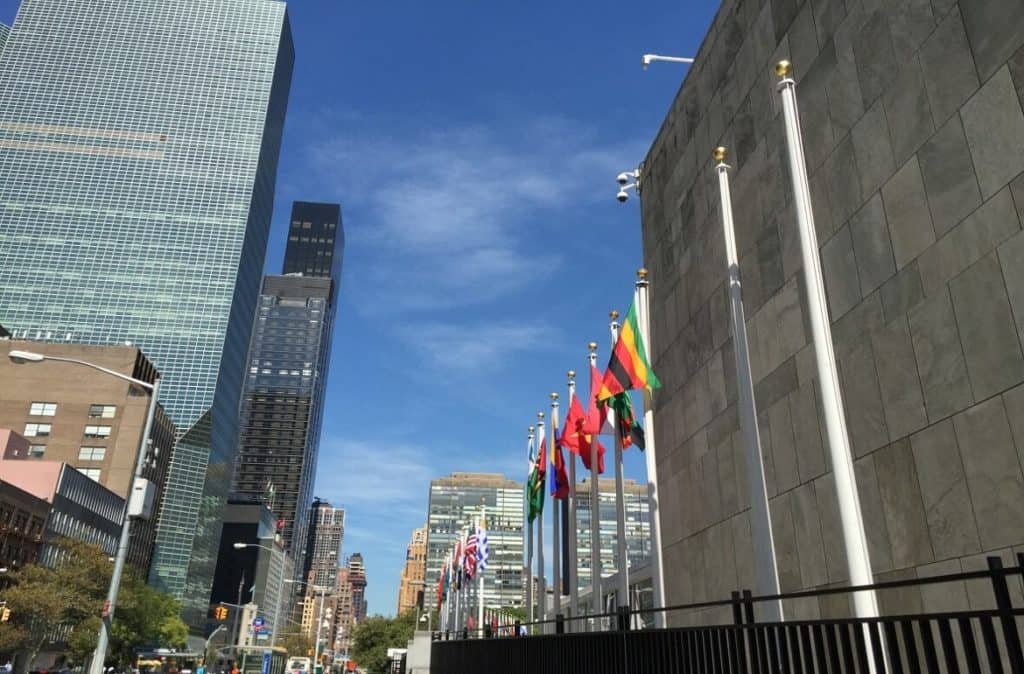By María Isabel Niño- Rada
The Peace of Westphalia, a treaty signed in 1648 which ended the Eighty Years’ War, is known for providing the foundation of the modern state system and articulating the concept of territorial sovereignty, because it allowed a number of countries to receive territories or to be confirmed in their sovereignty over land they occupied.
 That was how the modern configuration of what we know as states was shaped and it ended the division between clans and sects among Europe and it was replicated in other latitudes because of the European colonial influence.
That was how the modern configuration of what we know as states was shaped and it ended the division between clans and sects among Europe and it was replicated in other latitudes because of the European colonial influence.
The classic organizing concept of states spread around the world, and this generated that each entity was entitled to respond to specific situations according to national interests, which worked very well for states for more than three hundred years. However, eventually cooperation became a solution for conjunctural issues through multilateralism, but it was never considered as a permanent state of the international system.
When the globalization phenomena emerged, the technologies, communications and travel became crucial in the world development, which led to new challenges beyond national interests. The increasing interconnection and interdependence between states, made some rethink that maybe that classic organization structure did not respond anymore to the new global circumstances, which should be addressed from a more multilateral and cooperative lens.
Since there is not an organization that leads the international system as a whole, the idea of a new global civilization with mandatory powers started to be considered. However, some believe this is impossible because it is really hard to get the willingness of each one of the states to achieve consensus when national interests are at stake.
Oftentimes, national solutions tend to be immediate and short termed since there is pressure among voters, and global solutions seek to have a far reaching effect, but sometimes are not very popular among voters in countries where a global solution could decrease the power of the nation. This dichotomy between global and national interests is presented to states on a daily basis and the international system needs to look for a solution for this.
Sometimes in history, there has been a country that intervened into a global issue to somehow take care of the rest of the world, this is the example of the US in World War II or the intervention of the UK in the G20 in the 2008 economic crisis. This could be explained not only when common problems appear, but when those common problems start to become global ones and someone feels the necessity to intervene. Tony Blair once said that each human being should considered themselves as global citizens as well as citizens of their own countries to face these global threats.
Other example of global intervention in global issues is certainly the fight against global warming. The environmental challenge of global warming generated that in Rio+20 it was proposed to delegate sovereignty to global institutions and to make sure these global institutions have real legitimacy and jurisdiction over key global issues. This was also considered in the fight against terrorism and even in the ongoing Covid-19 pandemic.
The truth is that states do not have the obligation to intervene unilaterally in face of a global threat unless they have the will to do so, so another proposed solution is to strengthen existing cooperative institutions of global governance, multilateral consensus and agreements and webs of organizations in order to share economic and other resources to respond in a more effective manner to the more increasing global challenges.
The ultimate example of a multilateral organization is the UN, since its many areas of action make its work more visible and also because it is has the most members. So the question is why if the international system has this multilateral platform it is difficult to achieve consensus over global issues that have a significant impact, over each and every one of the international system actors.
The answer to this question is related to the UN funding. The financing of UN operations is the collective responsibility of all UN Member States and every Member State is legally obligated to pay their respective share, in accordance with the provisions of Article 17 of the Charter of the United Nations.
On the other hand, the General Assembly apportions takes into account, among other things, the relative economic wealth of each Member States, with the five permanent members of the Security Council required to pay a larger share because of their special responsibility for the maintenance of international peace and security. In virtue of this additional responsibility that falls on the Security Council members, they have been reluctant to the increasing of this assessed contributions, even though there are more issues that UN should take care of and, consequentially, more funding is needed.
Many countries also make additional resources available to support UN efforts in a voluntary manner above and beyond their assessed share of peacekeeping costs, including support in military and police personnel required for each peacekeeping operation. The five permanent members of the Security Council prefer to done to the UN through voluntary contributions, because this will allow them to establish the agenda of these contributions and to manage them for their own interests. The problem with the voluntary contributions is that they come and go and are unpredictable, because they depend on the will of a government and not of a state.
In conclusion, the behavior of states within the UN system is a microcosm of their conduct in a hypothetical global government, which poses challenges to the increasing global issues. Multilateralism often opposes to national interests and the idea of a global government is far to be materialized in the current state of the international system.
Author: María Isabel Niño Rada (Professional Specialized in Presidential Council for Human Rights and International Affairs; Lawyer and professional in International Relations from the Universidad del Rosario, Colombia; Diploma in International Protection of the Human Rights of Women from the Universidad Austral, Argentina. She is currently enrolled in a Postgraduate degree in Constitutional Law at the Pontificia Universidad Javeriana. Bogotá D.C. Area, Colombia)
(The views expressed in this article belong only to the author and do not necessarily reflect the views of World Geostrategic Insights)
Photo Credit: Patrick Ferguson/CBC







